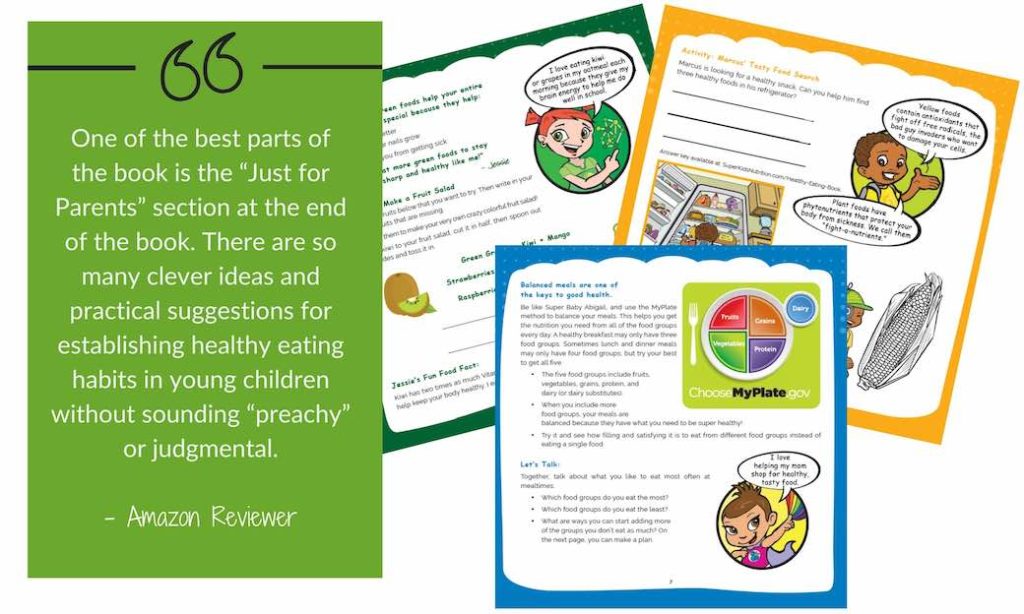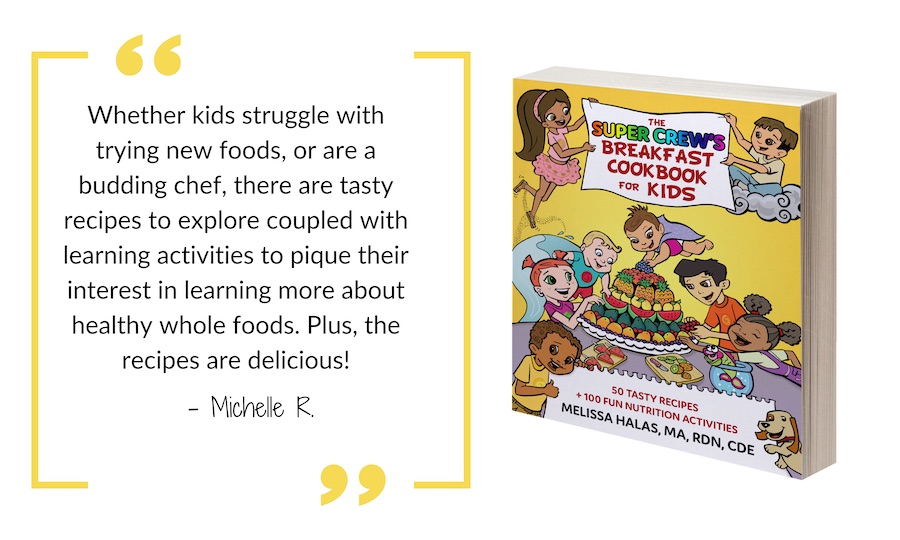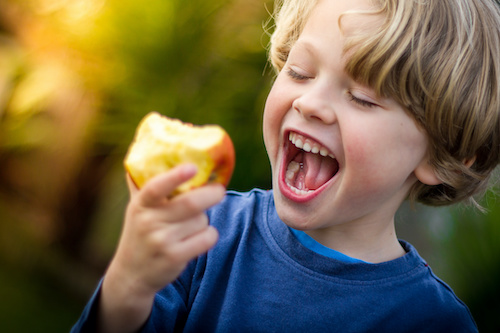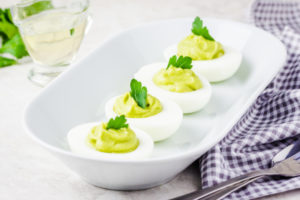
Do food rewards help improve children’s eating habits or make them worse? Here are easy ways to choose the right rewards for kids.
Understand how tasty incentives can impact children’s food preferences in the long run. At some point, we have all used sweet treats for bargaining power, whether it be to incentivize good behavior at the store or to try a few bites of broccoli.
While food rewards may seemingly expedite the veggie tasting process, they can be detrimental to your child’s long-term relationship with food. Check out why parents and caregivers should end food-based rewards and instead use these other key solutions to foster long-term healthy habits.
Subscribe to our newsletter for an insightful tool on more strategies for avoiding food rewards.
Using sweet treats as a reward for kids can intensify your child’s sweet tooth.
Humans, and especially children, have an innate evolutionary preference for sweets. This biological desire is thought to ensure children accept breastmilk and calorically dense foods during critical periods of development (6). But, the more a child gets exposed to sweet foods, the more they crave. So, using these treats as a reward can encourage your child to seek out even more of those indulgent, less nutrient-dense foods. (1) And might even result in a higher risk of excessive weight gain further down the line. (4)
Food-based rewards can impair your child’s sense of self-regulation.
By using food as a reward, your child is encouraged to eat solely for pleasure rather than appease a physiological sense of hunger. (2) In other words, it reinforces eating with their eyes rather than thinking with their stomachs. But, creating this disconnect between hunger and feeding can cause your child to ignore feelings of fullness and ultimately bypass their body’s regulatory system that controls hunger cues, which can encourage overconsumption. This extends beyond food and is also important to keep in mind with sweet beverages such as juice or milk.
Indeed, children ages 1-6 should consume no more than 4-6 ounces of 100% fruit juice per day. Using juice as a reward can result in overconsumption, contributing to dental caries and inappropriate weight gain (5). Instead, lead by example and reinforce more mindful eating behaviors to promote a positive relationship with food and healthful eating patterns. Children who received food-based rewards at four years of age were more likely to have tendencies for emotional overeating and picky eating at nine years old. (7) For easy, interactive, and fun ways to foster better mealtime habits and food curiosity, check out my book, available in English and Spanish.
Rewarding kids with food can send your them mixed messages.
Using tasty treats as a reward inadvertently places a high value on less nutritious foods and indirectly demonizes healthy options. It teaches children that food rewards are something to strive for and that nutritious options are the undesired consolation prize. Food-based rewards can also cause your child to associate indulgent foods with good behavior, which can leave parents and caregivers stuck in a negative cycle. (2) Instead, work towards teaching your child about the importance of making healthy food choices. Not sure where to start?

Food-based rewards may condition your child.
When using food as a reward, your child may become conditioned to always seek it as a reward for good behavior. But what happens when there aren’t any sweets in sight? This can become a mealtime dilemma…and a headache for parents or caregivers! Not to mention, it will likely become even more of a struggle to motivate your child to eat healthy foods.
This association between good behavior and food indulgences can continue into adult life, increasing the risk of developing emotional or negative eating behaviors. (3) In one study, children who received food-based rewards at four years of age were more likely to have tendencies towards emotional overeating and picky eating at nine years old (7). Indeed, using non-food rewards can in fact, contribute to a reduction in picky eating (Taylor & Emmett, 2018). It’s a win-win situation!
Finally, if the above reasons are not convincing enough, some of the leading professional organizations in the US such as the American Academy of Pediatrics, American Academy of Family Physicians, the American Psychological Association and Academy of Nutrition and Dietetics all agree – food should not be used as a reward or as a punishment, only as nourishment! (8)
Non-food rewards: the solution.
All you want is for your child is to behave at Target, which somehow turns into World War III. Instead of sweets, use these fun ideas below to encourage healthy habits. See what works best for your family! For getting kids to try new food, you can try some small gifts below like a sticker, but the best way to get kids to try new foods, is getting them involved in cooking, and making good nutrition tasty, fun, and creative. Here is a simple list of easy rewards for kids:
- Stickers
- Pencils
- Books
- Fun erasers
- Jump ropes
- Coloring pages
- Books
- Small toys
- Sticker chart
- Special family outing
- Family movie night
- Reading an extra book at bedtime
Keep reading for a more in-depth look at these ideas.
Give small gifts…
Small gifts with long-term enjoyment! Stickers. Pencils. Books. Fun erasers. Jump ropes. Coloring pages. Books. Small toys. The list goes on and on! Use these gifts to foster creativity, passion, learning, and non-food related fun. There are endless options that offer days of enjoyment, won’t break the bank, and are much healthier than yet another sweet treat.
…or bigger gifts
Instead of small gifts, you can create a sticker chart or bean jar to fill, which accumulate into big gifts rewards. Let the anticipation build and the hard work begin! When my daughter was three, we purchased three sizes of heart-shaped buttons; each had a different value that added up to toy purchased, extra trips to the library, or special outings. So instead of being quiet at church and you’ll get a donut, it was you’ll earn a big heart button. See more rewards based on age level.

Plan a special family outing.
There is no more extraordinary gift than that of family memories. Plan a family trip to your local museum, zoo, pool, park, or take part in your child’s favorite outdoor adventure (depending on what is open!). Involve your kiddos in the selection process for an extra special treat. Whether it be active, educational, or outdoorsy, family fun activities create lasting memories, AND boost their health!
Don’t forget about simple rewards.
KISS. Keep it super simple (okay, that’s not exactly how the saying goes). But, rewards CAN be as simple as a family movie night, reading an extra bedtime story, letting your child choose the car music, or the next healthy mealtime recipe. While this may seem easy for parents, these rewards can still be special for your child and serve as good motivators.
We get it. Sometimes food rewards are just convenient. But, focus on the long-term satisfaction of developing your child’s healthy eating habits with non-food rewards, rather than the short-term gratification of getting them to try a new vegetable alongside a sweet treat or behaving at the store. In the meantime, if you haven’t already signed up for our newsletter, join our list to receive bi-monthly nutrition and wellness tips, plus get a FREE Say “No” to Food Rewards Guide to add even more ideas to your list.

This leaves me pondering what would happen if parents gave berries or other fruit or even sweet vegetables as a reward from the very beginning. Perhaps a future study?












